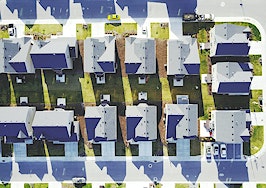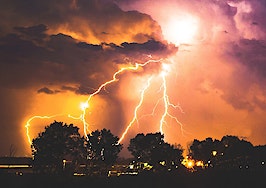Inventory should improve compared to last year, and the home sales cycle should be shorter than usual if rates climb as high as expected, Redfin CEO Glenn Kelman said in an interview with CNBC this week.
About three-quarters of homebuyers are worried about inflation, Kelman estimated. With others anticipating the forthcoming rate rise, meanwhile, many homesellers looking to capitalize.
“We have done an unusual number of consultations coming into this homebuying season, with people who want to prepare their homes to list,” Kelman said. “My guess is that the housing market will have a shorter season than usual because interest rates are going to start increasing through 2022.”

Glenn Kelman
Homeowners are rushing to prepare their homes to sell in the coming months, trying to beat an incoming hike in mortgage rates, Kelman added.
Buyers, meanwhile, remain at a crossroads: Should they make a move before rates climb further or wait and hope that prices come down from all-time highs?
“For some people that means they want to hurry up and buy a home before interest rates increase,” Kelman said. “Others are starting to step back from the market.”
There are signs that buyer demand for mortgages has already begun to slide. The Mortgage Bankers Association’s Weekly Mortgage Applications Survey showed demand for purchase loans has dropped as 30-year fixed-rate home loans reached the highest level since April.
If rates continue to climb, Kelman predicts a further slowdown in buyer demand toward the latter half of the year. Price hikes may slow slightly, which overall, he suggested, would be a good thing.
“Because inventory is so low, I don’t think there’s going to be a significant stepback in prices,” he said. “We can’t see the kind of price appreciation we saw over the past two years. That’s unrealistic and, in fact, undesirable.”
What about rent?
Median rent rose 11 percent in the U.S. last year, three times the typical annual rate of 3-4 percent overall. Kelman said he expects rent to keep climbing, but likely not at such breakneck speed.
The increase in 2021 was led by single-family homes, which climbed 26 percent compared to a 1 percent rate hike for apartment homes.
Kelman attributed the steep rent hikes in part to landlords who were hamstrung at the onset of the pandemic by moratoriums on rent hikes.
“Landlords were just dying to raise rents when there was this eviction moratorium,” he said. “They finally got a shot at doing so, and they sent them through the roof. But we’re not going to see the same type of rate increases in 2022 that we saw in 2021, people [just aren’t] going to be able to afford it.”




